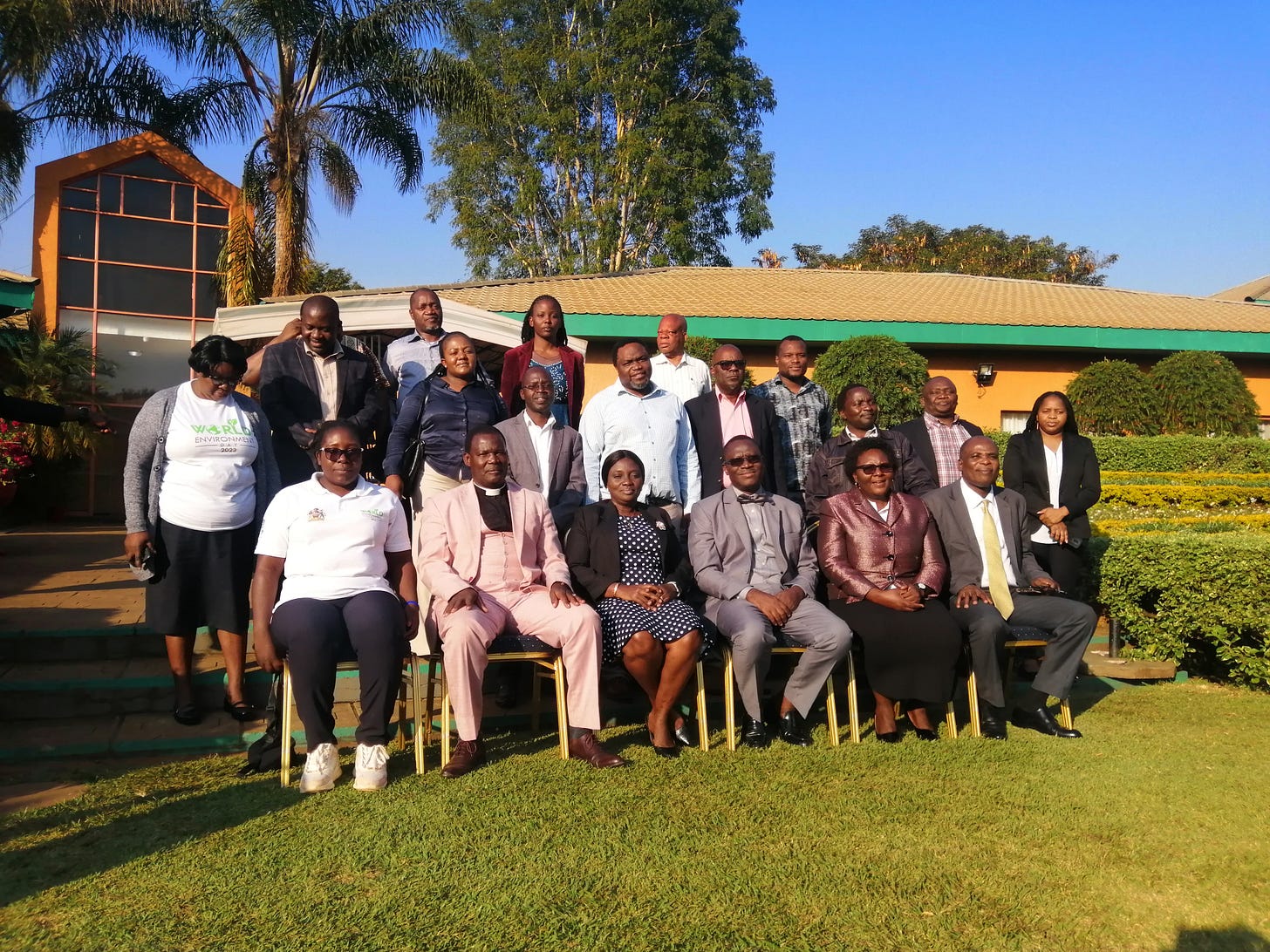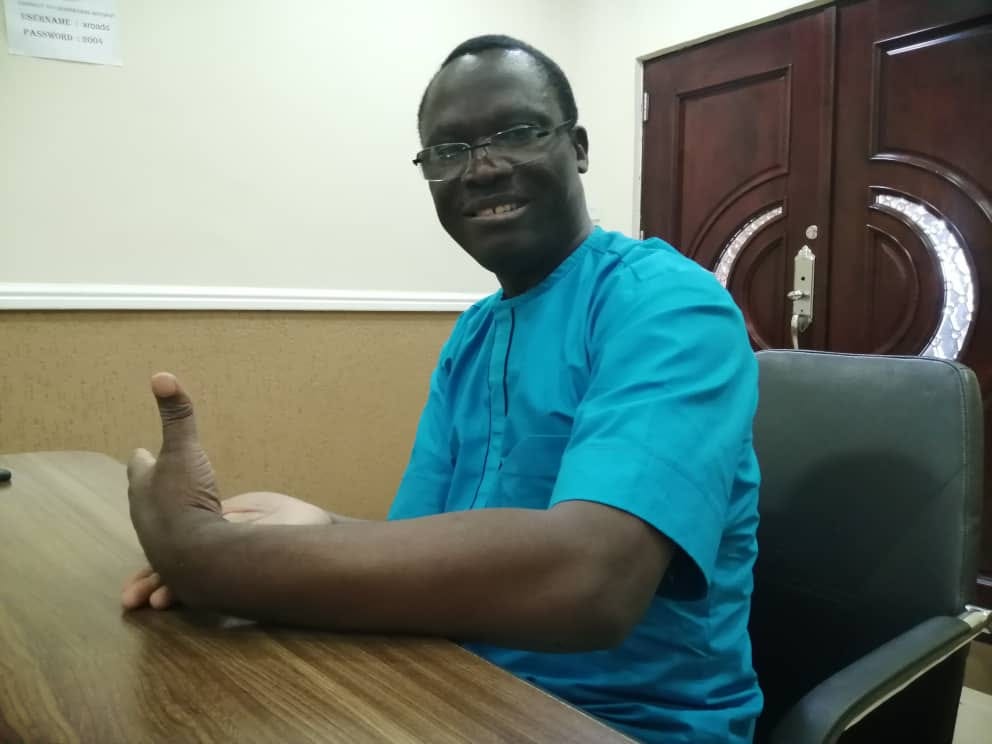AUDA-NEPAD supports Malawi’s Genome Editing Communication Strategy
Malawi's genome editing communication strategy will scale up public awareness and build institutional capacity for research and development to spur economic growth
The Gene Editing Communication and Advocacy Strategy development crew that helped work towards content consolidation. The strategy now being perfected is awaiting the validation process soon (Photo - Charles Mkoka, Planet Defence)
LILONGWE, Malawi (Planet Defence) - The African Union Development Agency – NEPAD through its centre of excellence in Science, Technology, and Innovation is supporting the development of the first ever Genome Editing (Ged) national communication and advocacy strategy in Malawi.
The strategy will scale up public awareness and build institutional capacity for research and development, technology transfer, resulting in an expanded portfolio and a more efficient utilization of innovation capacity to develop compelling products.
The GEd project aims to foster a broader understanding of modern bio-technology focusing on different stakeholder groups through communication and advocacy for enhanced uptake of the tool to optimize agriculture in Africa.
The initiative builds on and complements ongoing AUDA-NEPAD efforts towards enhancing regulatory capacities on Biosafety through the African Biosafety Network of Expertise (ABNE).
While ABNE’s focus is on regulation to ensure biosafety, AUDA-NEPAD centre of excellence in science, technology, and innovation brings in a focus on innovation, research and development capacities towards commercialization of genome edited agricultural products thus contributing to rapid industrialisation.
The move to put up national communication strategies and advocacy strategy is based on the recognition contained in Agenda 2063 #AfricaWeWant.It recognises that technological advancements from biotechnological innovations in plant and animal breeding have the potential to advance continental agricultural sustainability goals and transform African societies.
Speaking at Crossroads Hotel in Lilongwe recently, AUDA – NEPAD’s Professor Olelakan Akinbo, began by thanking government of Malawi for giving the opportunity to implement the initiative.
Akinbo added that a key element of Agenda 2063 is zero hunger and the need for Africa to embrace emerging technology adding that GEd in just one of the many technologies towards achieving that dream.
“Bringing in an initiative to achieve one of the aspirations in Agenda 2063, capacitate local scientists and farmers to improve agriculture productivity. This will help small scale farmers to produce optimally for food and for commercial purpose, in turn help to improve trade on the continent.” explained Akinbo on the sidelines of strategy developing process.
He added that communication is key for any emerging technology that is taken to the farmer.
“Communicating to the different stakeholders on a new technology being developed is important, if there is no communication they will be techno-phobia. Give me a crop that improves my need, that is communication. It is for this reason that we are doing it for us. Communication the right messages to the various stakeholder for the people to see their interest in the technology.” elaborated Akinbo in an interview.
Professor Akinbo - Give me a crop that improves my need, that is communication Photo - Charles Mkoka, Planet Defence
Tawonga Mbale – Luka, Malawi’s Director of Environmental Affairs thanked AUDA – NEPAD for the GEd capacity building programme adding the technology will help address the challenges facing Malawi in the sector of agriculture.
“I am happy to see that you have developed the communication and advocacy strategy for GEd including an action plan. Over and above that, I am also excited to see there is a budget planned which gives me the assurance that the activities will be implemented.” Mbale- Luka summed it up.
AUDA-NEPAD has successfully conducted GEd sensitization exercises and engagement with high level officials towards the buy-in of the tool in the following eight countries: Burkina Faso, Ghana, Ethiopia, Nigeria, Zambia, Mozambique, Zimbabwe and Eswatini.
AUDA-NEPAD and partners hopes that the development of the communication strategy and action plan will enhance public, government, private sector and media confidence in agricultural research and modern biotechnology.
This is envisaged to help solidify the basis upon which the Government and other actors will effectively champion the upscaling of locally adapted Ged and related products for commercialisation.





